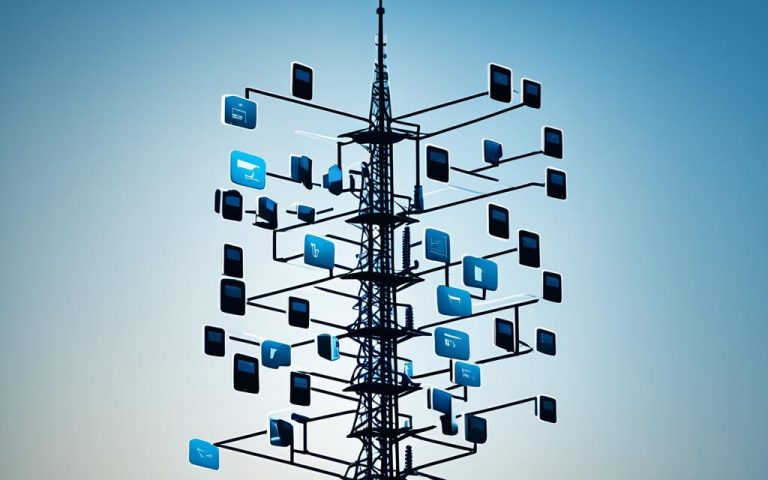In today’s fast-paced world of cellular communications, CDMA technology plays a crucial role in shaping the networks that keep us connected. CDMA, or Code Division Multiple Access, is a radio telecommunication standard that is widely used in cellular networks worldwide.
CDMA technology is based on spread spectrum techniques, which allow multiple users to share the same bandwidth by assigning each user a unique code. This innovative approach provides several advantages over other technologies, making it a popular choice for wireless networks, including 2G, 3G, and some 4G networks.
One of the key advantages of CDMA technology is its increased capacity. By utilizing the unique code assigned to each user, CDMA networks can accommodate a larger number of users compared to other technologies. This increased capacity allows for better call quality and improved network performance, even in high-traffic areas.
Another significant benefit of CDMA technology is its enhanced security. The unique code assigned to each user provides a higher level of protection against unauthorized access and eavesdropping. This ensures that your conversations and data remain secure, giving you peace of mind while using your cellular network.
CDMA technology also offers improved resistance to interference and fading. The spread spectrum techniques used in CDMA help mitigate the effects of external interference and signal fading, resulting in a more reliable and consistent connection. Whether you’re in a crowded urban area or a remote rural location, CDMA technology ensures that you can stay connected.
As cellular networks continue to evolve, CDMA technology remains a fundamental building block. Its advantages in terms of capacity, security, and reliability make it an essential component of today’s cellular networks. So, the next time you make a call or send a text, remember the role that CDMA technology plays in keeping you connected.
GSM vs CDMA: Understanding the Differences
When it comes to mobile communication, there are two prominent standards – GSM (Global System for Mobile Communication) and CDMA (Code Division Multiple Access). While both serve the same purpose, they have distinct features that set them apart. Let’s delve into the differences between GSM and CDMA.
GSM utilizes FDMA (Frequency Division Multiple Access) and TDMA (Time Division Multiple Access) for its operation. On the other hand, CDMA relies on Code Division Multiple Access. These different access techniques define how these standards allow multiple users to share the available bandwidth.
One significant difference between GSM and CDMA is their capability to transmit data and voice simultaneously. GSM supports this feature, enabling users to browse the internet, send messages, and make calls concurrently. However, CDMA does not offer simultaneous voice and data transmission.
Furthermore, another key distinction lies in the need for SIM cards. GSM requires a SIM card for each phone, allowing users to switch between devices and carriers seamlessly. However, CDMA phones do not use SIM cards and are bound to a specific carrier, limiting their flexibility in terms of switching between networks.
In summary, the main differences between GSM and CDMA can be summarized as follows:
- GSM uses FDMA and TDMA, while CDMA uses Code Division Multiple Access.
- GSM supports simultaneous voice and data transmission, while CDMA does not.
- GSM requires a SIM card for each phone, while CDMA phones do not.
To provide a visual representation of the differences between GSM and CDMA, refer to the table below:
| GSM | CDMA |
|---|---|
| Uses FDMA and TDMA | Uses Code Division Multiple Access |
| Supports simultaneous voice and data transmission | Does not support simultaneous voice and data transmission |
| Requires a SIM card | Does not require a SIM card |
Understanding the differences between GSM and CDMA is crucial for both consumers and professionals in the wireless communication industry. Whether it’s the technical specifications or the practical usability, knowing the distinctions helps in making informed decisions. In the next section, we will explore the advantages and disadvantages of CDMA technology.
Advantages and Disadvantages of CDMA Technology
CDMA technology offers both advantages and disadvantages in the realm of cellular networks. Let’s explore them in detail:
Advantages of CDMA Technology
CDMA technology comes with several advantages, making it a popular choice in cellular networks:
- Effective use of the spectrum: CDMA allows for efficient utilization of the available frequency spectrum by dividing it into small chunks and allocating them to different users simultaneously.
- Unlimited number of users: CDMA supports a large number of users on a single channel, offering scalability and accommodating growing network demands.
- Adaptable distribution of resources: CDMA dynamically allocates resources based on the users’ needs, ensuring optimal utilization and maximizing overall network capacity.
- Compatibility with other cellular technologies for roaming: CDMA technology allows for seamless interoperability with other cellular technologies, enabling smooth roaming experiences for users.
- Enhanced voice quality: CDMA provides improved call quality, ensuring clear and reliable voice communication for users.
Disadvantages of CDMA Technology
While CDMA has its advantages, there are some disadvantages associated with this technology:
- Need for time synchronization: CDMA requires precise time synchronization among devices, which can be challenging and may introduce complexity into the network infrastructure.
- Limited international roaming compared to GSM: CDMA networks may have limited international roaming capabilities compared to GSM networks, which can hinder seamless connectivity for users traveling abroad.
- Performance degradation with increasing number of users: As the number of users on a CDMA network increases, the overall performance may degrade, affecting call quality and data transmission speeds.
- Immaturity of CDMA networks compared to GSM: CDMA technology has been surpassed by GSM in terms of maturity, as GSM has been widely adopted and developed over the years.
- Potential for delay when choosing the code length: The choice of the code length in CDMA can introduce delays in network operations, impacting the overall efficiency of the system.
| Advantages of CDMA Technology | Disadvantages of CDMA Technology |
|---|---|
| Effective use of the spectrum | Need for time synchronization |
| Unlimited number of users | Limited international roaming compared to GSM |
| Adaptable distribution of resources | Performance degradation with increasing number of users |
| Compatibility with other cellular technologies for roaming | Immaturity of CDMA networks compared to GSM |
| Enhanced voice quality | Potential for delay when choosing the code length |

Advantages and Disadvantages of GSM Technology
GSM technology offers a range of advantages that contribute to its widespread use in cellular networks. These advantages include:
- Inexpensive base stations and mobile sets(Advantage)
- Enhancement of spectrum efficiency(Advantage)
- Excellent voice and data signal quality(Advantage)
- Compatibility with ISDN(Advantage)
- Widespread availability for worldwide roaming(Advantage)
Despite its advantages, GSM technology also comes with its fair share of disadvantages. These disadvantages include:
- Potential bandwidth delays and interface issues due to multiple users sharing the same bandwidth(Disadvantage)
- Potential interference with certain devices(Disadvantage)
- The need for repeaters to improve coverage(Disadvantage)
- Limited capability for high data rates(Disadvantage)
Comparison with CDMA Technology
While GSM technology offers its own set of advantages, it is important to compare it with CDMA technology to understand the differences and make informed decisions. CDMA technology, as discussed in the previous section, provides advantages such as increased capacity and enhanced security. However, CDMA also has its own set of disadvantages, including the need for time synchronization and limited international roaming compared to GSM.
By evaluating the advantages and disadvantages of both GSM and CDMA technologies, network operators and users can choose the technology that best suits their specific requirements.
Conclusion
In conclusion, both CDMA and GSM are widely used standards in cellular networks, each with its own advantages and disadvantages. CDMA offers increased capacity and enhanced security, while GSM provides easier international roaming and better coverage in rural areas.
As technology evolves, the differences between CDMA and GSM are becoming less relevant, with the transition to 4G LTE and the upcoming 5G networks. The choice between CDMA and GSM depends on various factors, including the specific requirements of the network and the preferences of the user.
FAQ
What is CDMA technology?
CDMA, or Code Division Multiple Access, is a radio telecommunication standard used in cellular networks. It allows multiple users to share the same bandwidth by assigning each user a unique code.
What are the advantages of CDMA?
CDMA offers increased capacity, improved call quality, better security, enhanced resistance to interference and fading, and compatibility with other cellular technologies for roaming.
What are the disadvantages of CDMA?
CDMA has the potential for delay when choosing the code length, limited international roaming compared to GSM, performance degradation with increasing number of users, and the immaturity of CDMA networks compared to GSM.
How does GSM differ from CDMA?
GSM uses FDMA (Frequency Division Multiple Access) and TDMA (Time Division Multiple Access) technologies, while CDMA uses Code Division Multiple Access. GSM supports transmitting data and voice simultaneously, while CDMA does not have this feature. GSM requires a SIM card for each phone, while CDMA phones do not use SIM cards and are tied to a specific carrier.
What are the advantages of GSM technology?
GSM offers inexpensive base stations and mobile sets, enhancement of spectrum efficiency, excellent voice and data signal quality, compatibility with ISDN, and widespread availability for worldwide roaming.
What are the disadvantages of GSM?
GSM has potential bandwidth delays and interface issues due to multiple users sharing the same bandwidth, potential interference with certain devices, the need for repeaters to improve coverage, and limited capability for high data rates.
Which technology is better, CDMA or GSM?
The choice between CDMA and GSM depends on various factors, including the specific network requirements and user preferences.




















One Comment